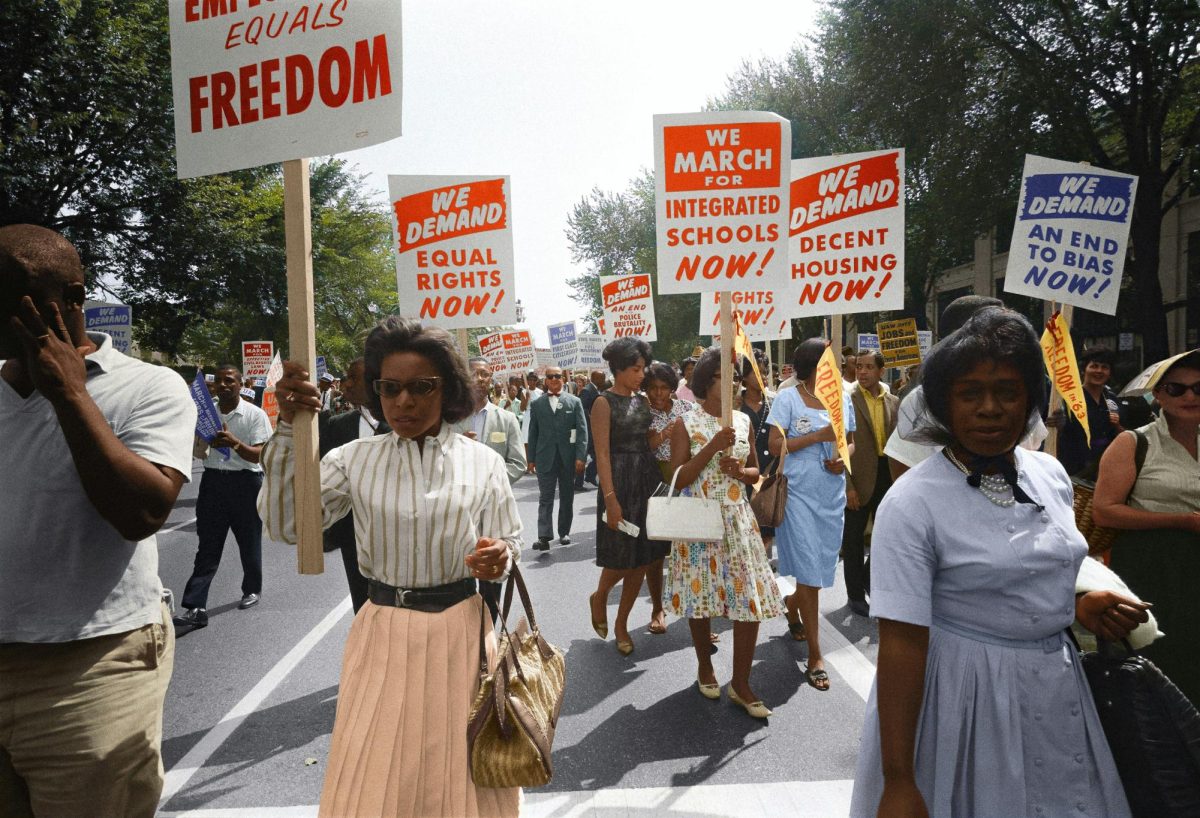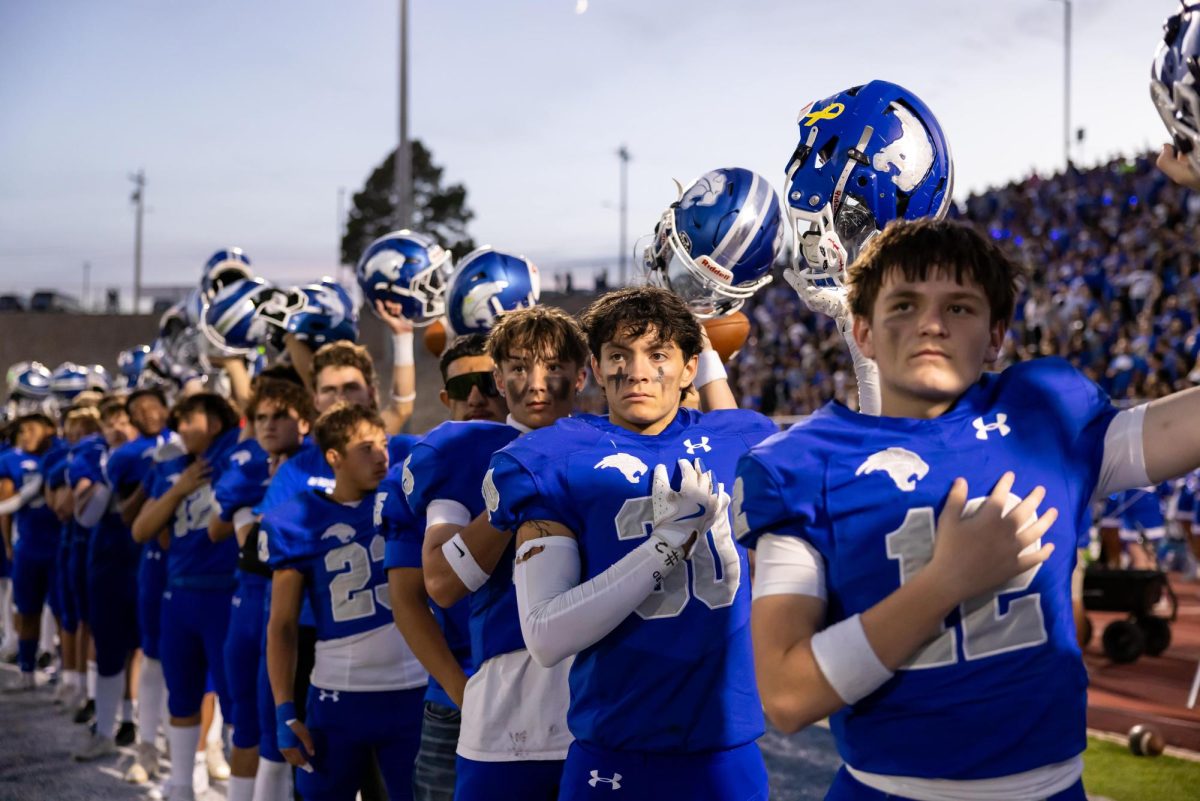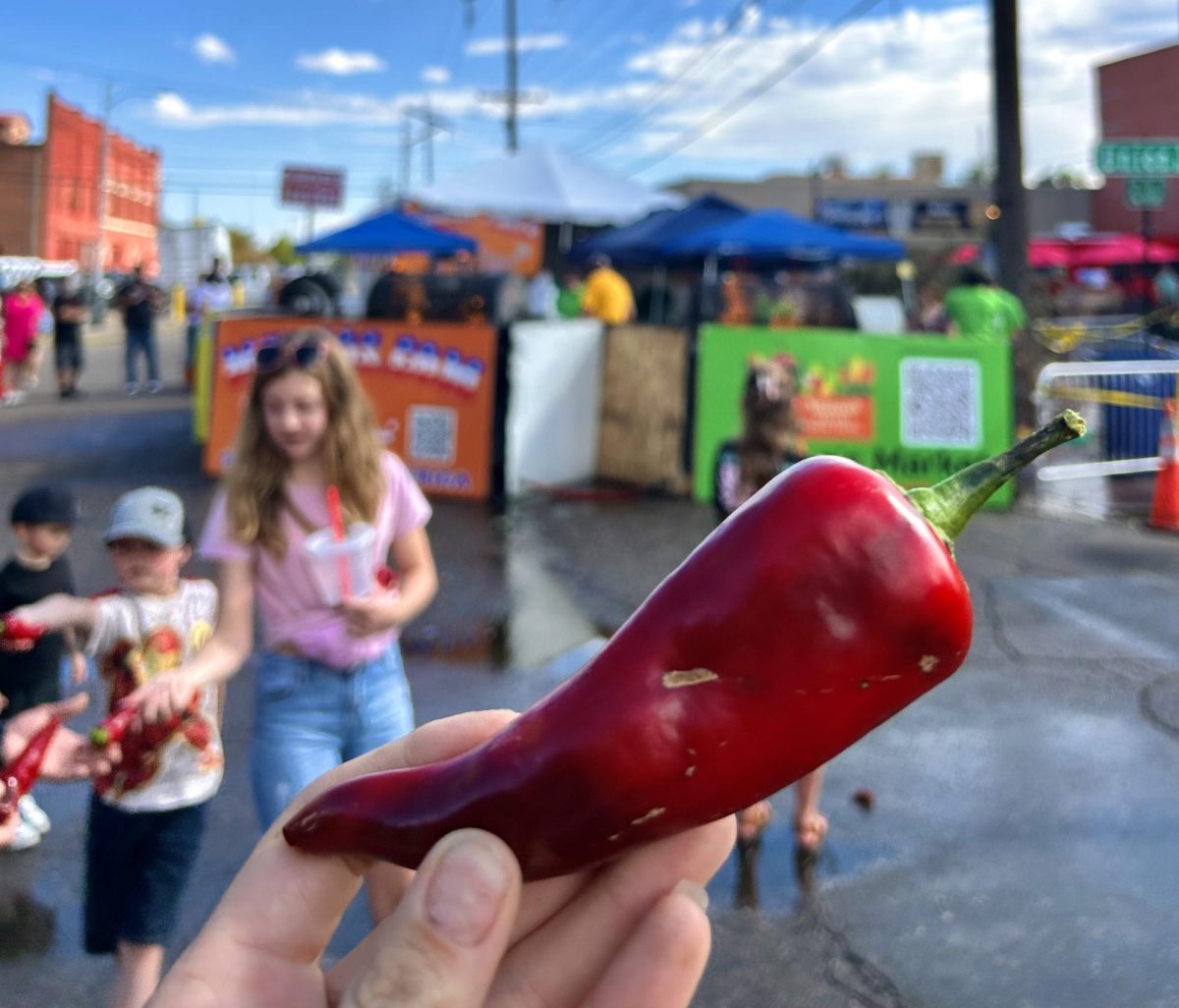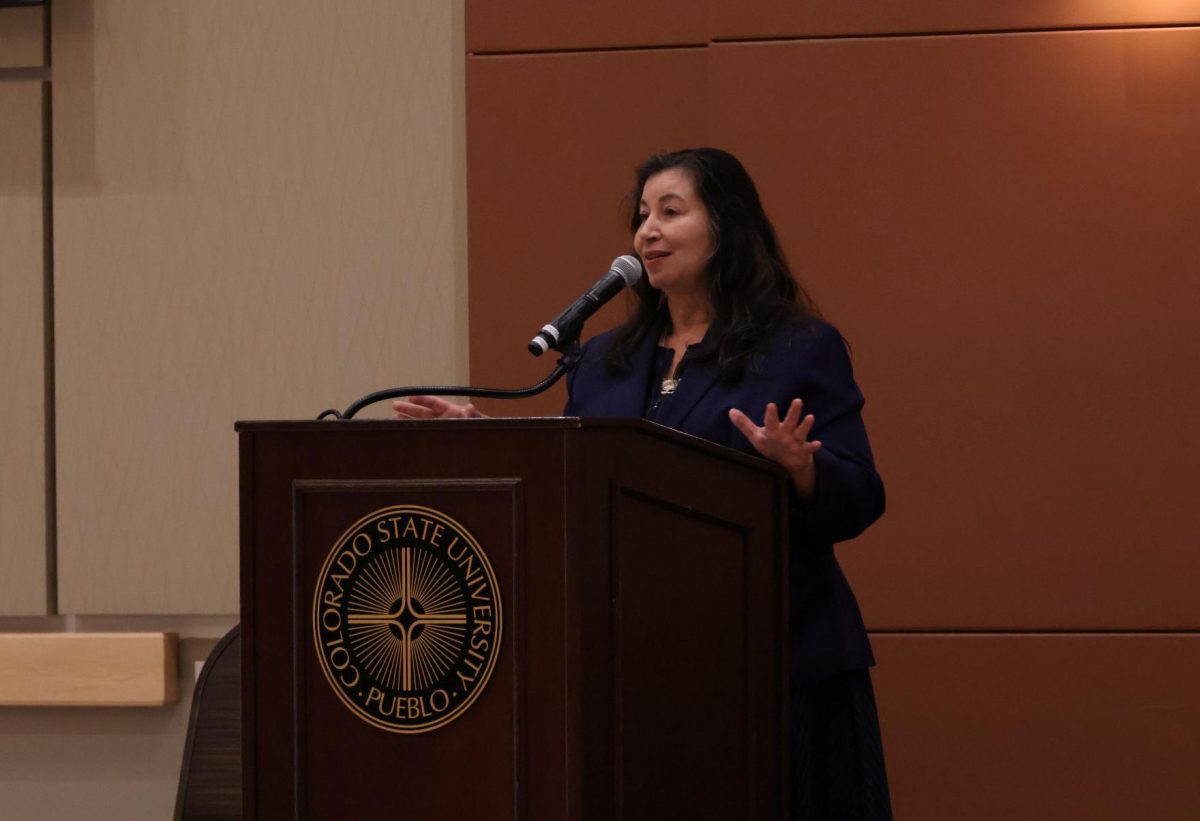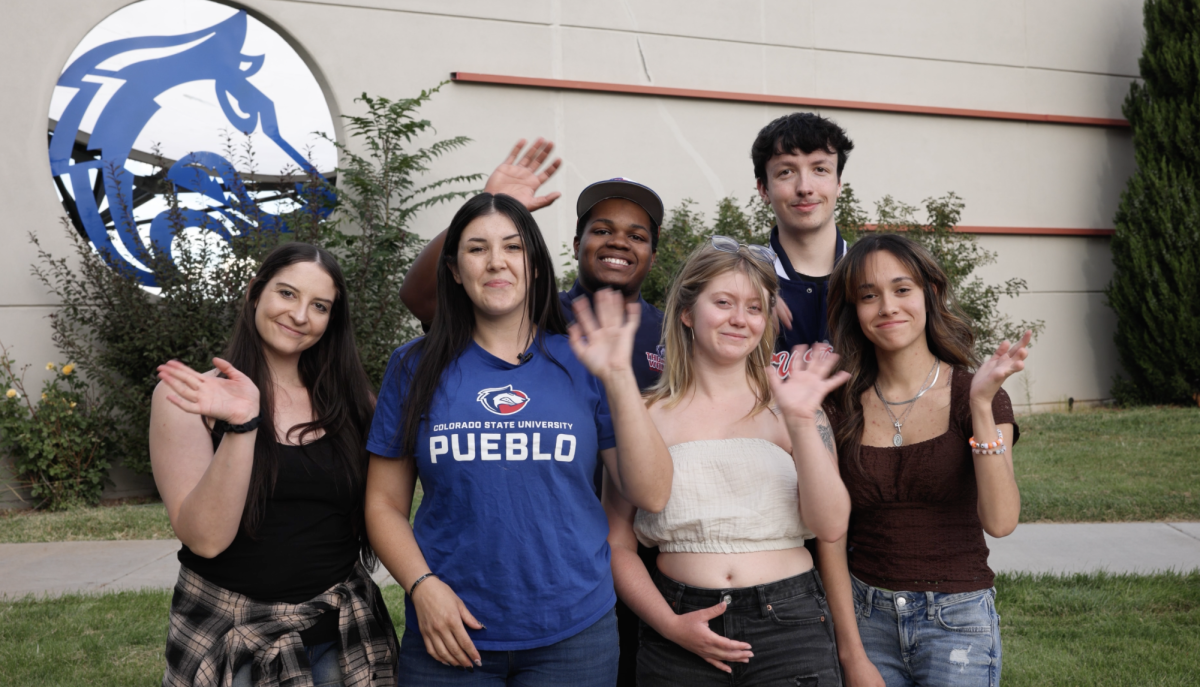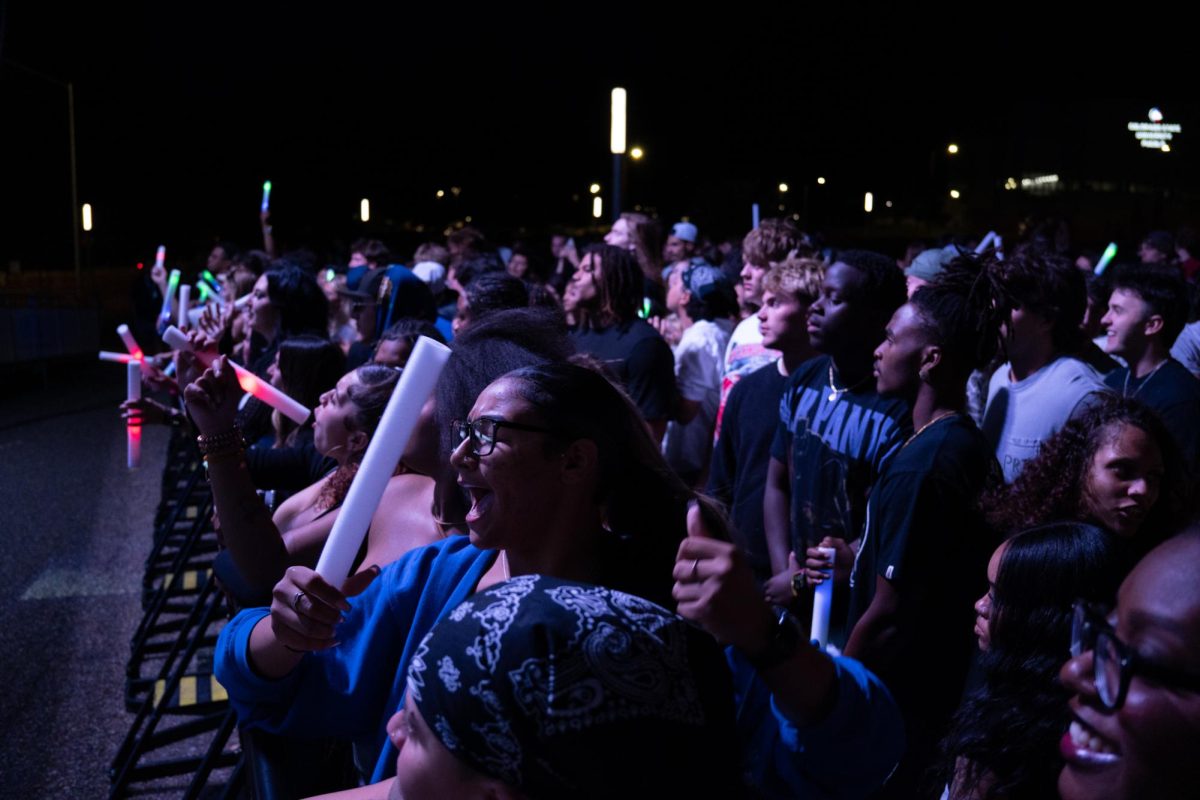Black History Month was created by Carter G. Woodson in 1925 to celebrate the different contributions and achievements African Americans have made throughout U.S. history, as well as to celebrate and recognize influential leaders in the fields of politics, arts, sciences, business, culture and more.
Events are held throughout February, and Black History Month is celebrated not only across the U.S. but also in many countries, including Canada, Ireland, the United Kingdom and the Netherlands.
The theme of Black History Month this year was “African Americans and the Arts”, which was about infusing African American history with African, Caribbean and Black American experiences in culture and history, and was done in the fields of visual and performing arts, literature, fashion, folklore, language, film, music, architecture, culinary and more.
The president of the Black Student Union at Colorado State University Pueblo, Shay Wilson, and BSU member Tate Kennece recently sat down with the Today to discuss the importance of Black History Month.
On the topic of critical race theory, BSU is trying to educate more people on this topic.
According to Merriam Webster, Critical Race theory is defined as a group of concepts (such as the idea that race is a sociological rather than biological designation, and that racism pervades society and is fostered and perpetuated by the legal system) used for examining the relationship between race and the laws and legal institutions of a country, especially the U.S. Which basically means that critical race theory is a social construct (way of thinking) in society today where systemic racism, which is defined as policies/practices that are established within specific institutions (i.e., political/social/cultural & more) are used to harm a certain racial group (i.e., African Americans), as well as help another racial group (i.e., white people); is merely the product of our own individual/personal biases or prejudices we have on other people.
“We live in a society today where slavery is not as prominent as it used to be, and we don’t live in the ’60s during the Civil Rights Movement,” Kennece said. “However, as we speak, in society today there are multiple school districts across the country that are trying to ban teaching about critical race theory in schools. For instance, in the Colorado Springs area, schools in District 49 are trying to ban teaching about critical race theory after their school board unanimously voted to ban it. Plus, we live in a society today where a lot more people are trying to hide and cover up teaching about difficult concepts in black history instead of learning from our past mistakes and using that to help us grow in society today. Regardless of all of that, I believe that with the power of BSU and who Shay can reach out to, we can educate a lot of people and really bring them all together no matter their race or ethnicity.”
Another topic: white privilege. White privilege is defined as the set of social and economic advantages that white people have virtue of their race in a culture characterized by racial inequality, according to Merriam Webster.
In other words, it means that white people have an unfair societal advantage or virtue in life that protects them from discrimination, which is to treat someone unfairly or differently due to their ethnicity, race, age, gender, sex or even disability.
“When it comes to white privilege, non-people of color need to realize that white privilege is a thing and is real, but also acknowledge the fact that even though they have this privilege, they need to be more delicate when it comes to pushing toward educating themselves about how people of color live life and run things on a day-to-day-basis (their truth) because non-people of color will never truly realize or understand what struggles and tribulations people of color have genuinely gone through in life due to the simple fact that they themselves have never truly experienced those same struggles and tribulations,” Wilson said. “Nevertheless, when it comes to BSU, we as African Americans as well as other people of color need to continue to educate non-people of color on those hard topics like white privilege and critical race theory because no one else will. Also, non-people of color need to realize when they need to take a step back from using their white privilege instead of just feeding into it, as white privilege only exists because Caucasian people (white people) allow and want it to exist.”
Wilson and Kennece also pointed out that many stereotypes continue to exist in society. Some common examples of common stereotypes that people of color face in society today are that Asians are seen as super-smart; black women are often judged in society for wearing their natural hair; all black people like fried chicken and grape Kool-aid and watermelon; black women often are characterized as “the angry black woman trope/cliche” whenever they get upset or angry; black people often are characterized as “lazy, poor or uneducated” because they come from poor and ghetto neighborhoods or suburbs in different cities; Hispanic women often are characterized as “the fiery Latina trope/cliche” whenever they get upset or angry; and Hispanics men often are characterized as gangbangers or job stealers if they are not originally from the U.S. (illegal) or seen as hard workers or lazy.
“When it comes to certain stereotypes, most people are ignorant,” Kennece said. “So we at BSU need to educate those people, as we live in a society nowadays where a Tik Tok video you saw two months ago is seen as a long time ago, and not a lot of people are paying attention to or grasping the fact that life is short. We also need to try to address the history of certain things as I personally live by the philosophy of those who do not know history will repeat it.”
Wilson added, “In American culture today, it is known for sweeping things historically under the rug when it comes to learning about people of color historically. In the sense that in society today we like to shield our kids away from learning about difficult topics like critical race theory, segregation, slavery and more because it makes us and our kids uncomfortable. So in order to combat these stereotypes, we in American society today need to acknowledge other people’s history (i.e., people of color), as well as the fact that people of color are not the stereotype they may fit into.
“I personally feel as if I have gone through more stereotypes at my time here at CSU Pueblo and Pueblo, Colo., than where I am originally from, which is Gary, Ind. One example is that recently I spoke on a panel for Black History Month, and I had a person come up to me and tell me that ‘I did really well at that panel, I had spoken so well, and I was so good with my words.’ This is a stereotype because Black people are often characterized as uneducated due to where they come from. As a result, when they do speak well, it is oftentimes seen as rare.
“Another experience that I have went through is that when I had first come to CSU Pueblo, the first two weeks of me being here, I was called the ‘n’ word by another student who is from Pueblo, and I was told by another student that this was not the first time he had said this to another African American person.
“Furthermore, another instance is the amount of times that I have been stopped by other students on campus because I wear my hair out in a natural form and they compare me to Angela Davis, whom I would like to mention I look nothing like. This is a huge stereotype because, essentially, they are saying that all black people look alike, which is definitely not the case,” said Wilson.
Kennece agreed, saying: “A stereotype that I personally have experienced is that I had a person come up to me and ask me about music for Black History Month and their response was, ‘I don’t know any R&B (rhythm and blues) music or Hip-Hop music.’ Which is crazy to me that African Americans are stereotyped into this one group; they only listen to Hip Hop and R&B music, when in reality they can listen to country, gospel, pop, jazz, alternative/indie music, rock music and more.
“Another personal experience that I went through was I got seriously hurt at my job and my boss made an insensitive joke about that situation. I had to stay quiet while that joke was made in order to keep my job, so I can continue to make money, when in reality if I were to have said something back, I would be characterized as the ‘angry black woman’ trope/cliche as well as the fact that I went against my own personal morals to do so.”
In addition to historic figures, Wilson and Kennece said people need to know more about today’s African American influential leaders such as Tarana Burke, an African American woman who founded the #MeToo Movement; Patrisse Cullors, Alicia Garza, and Opal Tometi, African American women who helped to form the #BlackLivesMatter Movement, which created the slogan, ‘Say Their Names’ in order to try to combat police brutality. This movement is very famous for helping African American families who have lost their sons or daughters at the hands of police brutality.




